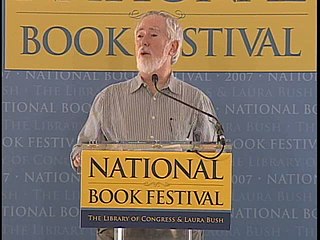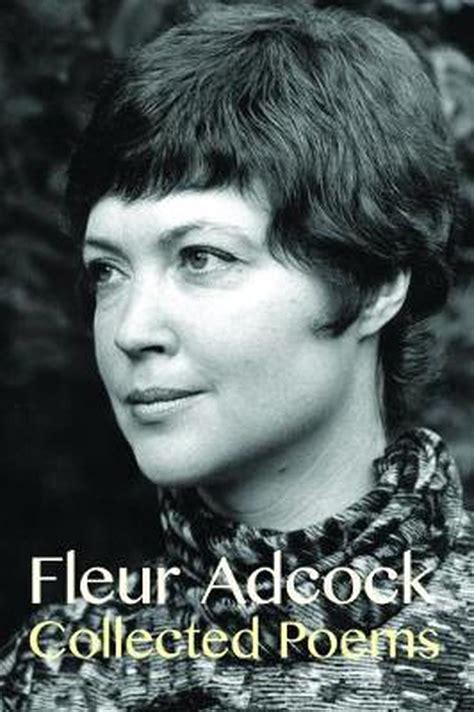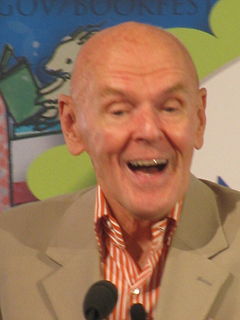A Quote by Jack Prelutsky
When I began writing, I didn't read any other children's poets... I didn't want to be influenced until I'd found my own voice. Now I read them all.
Related Quotes
You have to listen to your own voice. Not your heart, not your instincts, not any of that self-permissive psycho-babble stuff. No, none of that. If it was just about instincts and bright ideas it wouldn't need to be a voice. It's about words. You hear them, read them, then you write. But mostly read. Read the bloody poems.
I didn't want to teach my kid how to read, so I used to read to him at night and close the book at the most interesting part. He said, “What happened then, daddy?” I said, “If you learn to read, you can find out. I'm too tired to read. I'll read to you tomorrow.” So, he had a need to want to learn how to read. Don't teach children how to read. Don't teach them mathematics. Give them a reason to want it. In school, they're working ass-backwards.
Read to your children Twenty minutes a day; You have the time, And so do they. Read while the laundry is in the machine; Read while the dinner cooks; Tuck a child in the crook of your arm And reach for the library books. Hide the remote, Let the computer games cool, For one day your children will be off to school; Remedial? Gifted? You have the choice; Let them hear their first tales In the sound of your voice. Read in the morning; Read over noon; Read by the light of Goodnight Moon. Turn the pages together, Sitting close as you'll fit, Till a small voice beside you says, "Hey, don't quit.
I like reading books about kids where there weren't really many adults, where they didn't need an adult to come and solve the problems for them. They could use their own ingenuity, use their own talents to solve whatever the issue was. And I like that still. I think that children want to read about heroic children. They don't want to read about children that have to be saved all the time.
There's this pet phrase about writing that is bandied around particularly in workshops about "finding your own voice as a poet", which I suppose means that you come out from under the direct influence of other poets and have perhaps found a way to combine those influences so that it appears to be your own voice.
Ever since I was first read to, then started reading to myself, there has never been a line read that I didn't hear. As my eyes followed the sentence, a voice was saying it silently to me. It isn't my mother's voice, or the voice of any person I can identify, certainly not my own. It is human, but inward, and it is inwardly that I listen to it. It is to me the voice of the story or the poem itself.
My children haven't read 'Winter Journal'. They have read some of my work, but I really don't foist it on them. I want them to be free to discover it in their own good time. I think reading an intimate memoir by your father - or an intimate autobiographical work, whatever we want to call this thing - you have to come at it at the right moment, so I'm certainly not foisting it upon them.







































